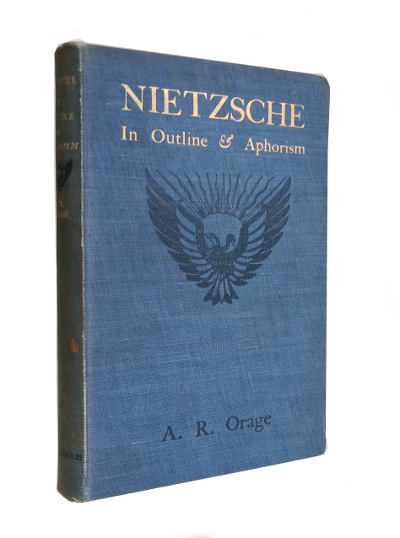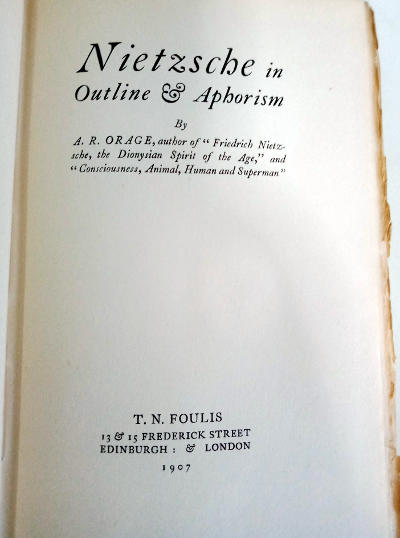A brief overview of Nietzsche’s philosophy, accompanied by collection of aphorisms, organised by topic.
Contents:
Introduction, Definitions
Philosophy
Life
Man & Woman
Art
Morality
Good & Evil
Willing, Valuing & Creating
Superman
New Commandments
Additional aphorisms
About Nietzsche (from Wikipedia)
Friedrich Wilhelm Nietzsche (15 October 1844 – 25 August 1900) was a German philosopher, cultural critic, composer, poet, writer, and philologist whose work has exerted a profound influence on modern intellectual history.
Nietzsche’s writing spans philosophical polemics, poetry, cultural criticism, and fiction while displaying a fondness for aphorism and irony. Prominent elements of his philosophy include his radical critique of truth in favor of perspectivism; a genealogical critique of religion and Christian morality and related theory of master–slave morality; the aesthetic affirmation of existence in response to the “death of God” and the profound crisis of nihilism; the notion of Apollonian and Dionysian forces; and a characterization of the human subject as the expression of competing wills, collectively understood as the will to power. He also developed influential concepts such as the Übermensch and the doctrine of eternal return.In his later work, he became increasingly preoccupied with the creative powers of the individual to overcome cultural and moral mores in pursuit of new values and aesthetic health. His body of work touched a wide range of topics, including art, philology, history, religion, tragedy, culture, and science, and drew early inspiration from figures such as philosopher Arthur Schopenhauer, composer Richard Wagner,and writer Johann Wolfgang von Goethe.
About Orage (from Wikipedia):
Alfred Richard Orage (22 January 1873 – 6 November 1934) was a British intellectual, now best known for editing the magazine The New Age. While he was working as a schoolteacher in Leeds he pursued various interests, including Plato, the Independent Labour Party and theosophy. In 1900 he met Holbrook Jackson and three years later they co-founded the Leeds Arts Club, which became a centre of modernist culture in Britain.
In 1924 Orage sold The New Age and went to France to work with George Gurdjieff, the spiritual teacher whom P. D. Ouspensky had recommended to him. After spending some time on preliminary training in the Gurdjieff System Orage was sent to America by Gurdjieff himself to raise funds and lecture on the new system of self-development, which emphasised the harmonious work of intellectual, emotional and moving functions. Orage also worked with Gurdjieff in translating the first version of Gurdjieff’s All and Everything as well as Meetings with Remarkable Men from Russian to English, but neither book was ever published in their lifetimes.




